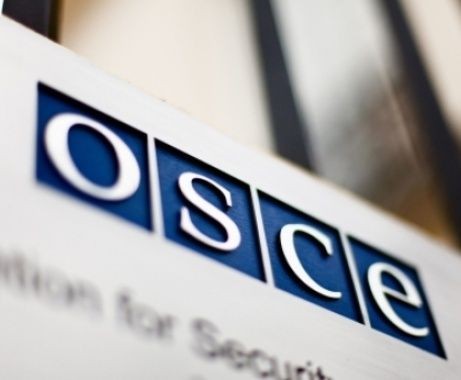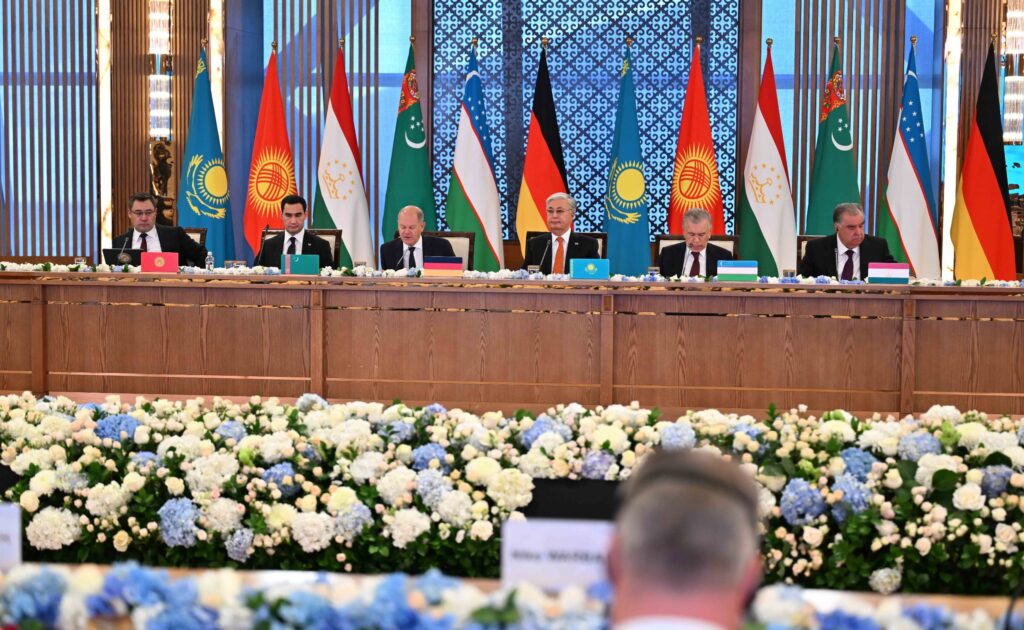ALMATY, Kazakhstan (TCA) — The role of digital technologies and tools in reducing corruption risks was the focus of a two-day high-level regional conference organized by the Office of the Co-ordinator of OSCE Economic and Environmental Activities (OCEEA) in cooperation with the 2019 Slovak OSCE Chairmanship and the Anti-Corruption Agency of Kazakhstan on 7 and 8 October in Almaty.
The conference gathered over 60 high- and senior-level officials and experts from Central Asia and the wider OSCE region.
“Digital technologies and tools are already deeply transforming our societies and our way of living, including the way we do business, our governance models, our policy agendas,” said Vuk Žugić, Co-ordinator of OSCE Economic and Environmental Activities. “Digitalization is also an integral part of the activities implemented by the OSCE, particularly at field level. I am convinced that embracing the benefits of technological change as a tool to promote corruption free, transparent and accountable societies will enhance security and stability in the OSCE region.”
Professor Paola Severino, the Special Representative to the OSCE Chair on Combatting Corruption said that the OSCE has an important position in the region given its work with all countries to build capacity to use digital and other tools to prevent and combat corruption. “Corruption has a direct negative impact on security and undermines trade, investment and economic growth. We must intensify our co-operation and jointly address challenges while learning from each other applicable ways and means to combat corruption in Central Asia and across the OSCE region,” she said.
Building on this message of cooperation, the Slovak Ambassador to Kazakhstan and Kyrgyzstan, Milan Kollár, said: “In an increasingly interconnected world, good governance requires a participatory, inclusive, multi-stakeholder and cross-dimensional approach among governments, civil society, business communities and academia.”
“Digitalization is the most effective tool to combat corruption,” said Alik Shpekbayev, Chairperson of the Anti-Corruption Agency of Kazakhstan. “We implemented a wide range of activities within the National Programme ‘Digital Kazakhstan’, focusing on automation and digitalization in public administration, primarily in the provision of public services.”
The participants discussed the use of digital technologies in monitoring the implementation of anti-corruption strategies, public procurement, asset declaration policies and beneficial ownership disclosure. Experts from Belarus, Lithuania, Moldova, Mongolia, the Russian Federation and Spain also spoke about innovative approaches, successful practices and solutions in introducing digital tools aimed at reducing opportunities for corruption.
The concluding session explored the opportunities for further exchange of experiences, cooperation among regional agencies dealing with corruption and corruption-related crimes, and potential support that the OSCE could extend to its participating States in Central Asia.
The participants agreed to meet regularly to discuss new projects implemented in the region and share best practices.









